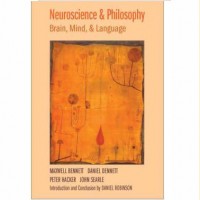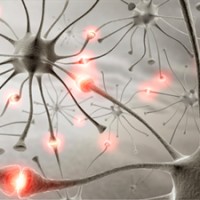This book is a good ‘ol fashion philosophers slugfest at its best. But I’m getting ahead of myself… T.H. Huxley famously said: how it is that any thing so remarkable as a state of consciousness comes about as the result of irritating nervous tissue, is just as unaccountable as the appearance of the Djin when…
Posted on February 4, 2013
In Book Reviews, by Greg
Posted on October 23, 2011
In consciousness, by Greg
Implicit memory is normally thought of as a type of memory where past experiences influence current thought and behavior, but without conscious awareness of those previous experiences. How does this work? Is there a “thing” in the brain we can point to and say “this is an implicit memory?” And is “memory” even the best…
Posted on June 19, 2011
In agency, consciousness, by Greg
Is it possible to behave in such way that you’re not being yourself? What is your true self? Your ingrained desires or your explicit values and commitments? And in a world where behavior and personality arise from neurophysiology, do we even still have room for the notion of a self?
Posted on May 16, 2011
In Brain Research, by Greg
Please note, what I am doing here is philosophy as informed by some very new research in the sciences. Memory deletion is NOT a reality. There is no clinic or hospital to go to have your memories erased. Please do not email me or comment with requests for help with trauma you have suffered. If…
Posted on February 2, 2011
In consciousness, by Greg
Today I want to talk about memory, and what’s wrong with some of our standard conceptions of how memory works, and even fundamentally what memory is. If you open up a brain and look inside it you won’t see any memories. You don’t open up a neuron as if it was a storage container and memories come spilling out. What about a network of them makes this story any different? How the heck changes in the strength of connections between cells cause a memory to be stored and experienced later is not something cognitive science has been able to address yet.
Posted on December 7, 2010
In Book Reviews, by Greg
I’ve always loved Science Fiction, and not just because books about the future are inherently cool. The reason I’ve always loved science fiction is because I’ve always loved philosophy. From a young age I enjoyed thinking about what makes us human, what is the nature of “self”, what is the nature of reality, and a…






